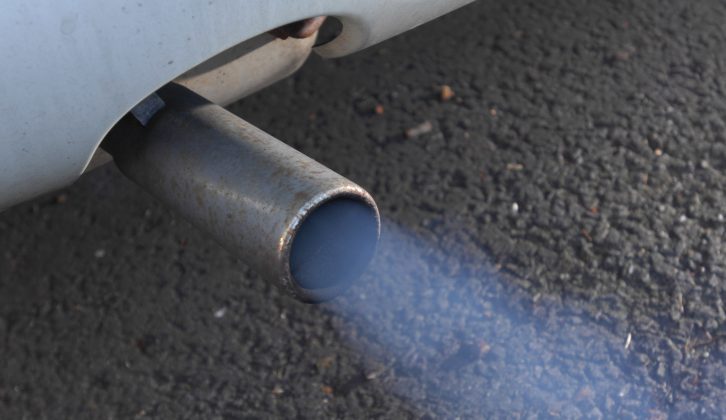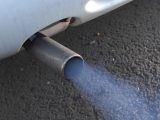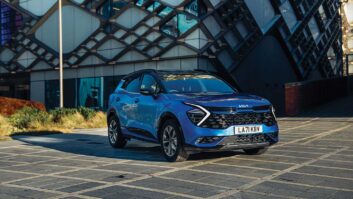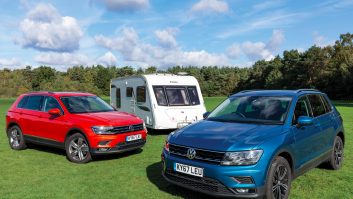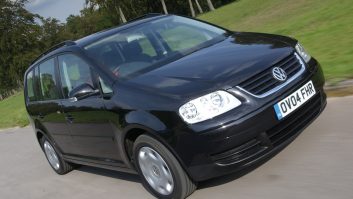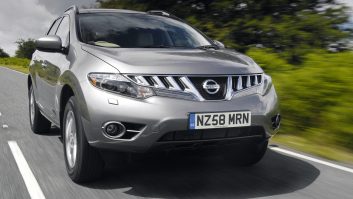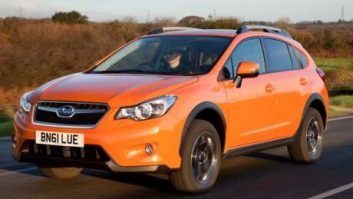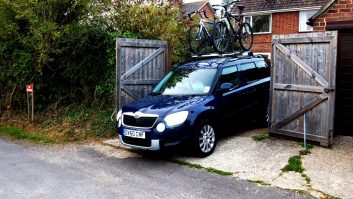What tow car do you drive? Is it diesel- or petrol-fuelled?
Diesel is dirty, or so the headlines tell us. Even the Transport Minister, Chris Grayling, has warned drivers that they should take a “long, hard think” before opting for diesel power.
For most tow car drivers, though, diesel vehicles have long been the default choice.
Is it realistic to make the switch to petrol or hybrid power and still tow a caravan?
Real-world worries
Judging from my inbox over the past couple of months, many caravanners are wrestling with this question.
In most cases the readers I’ve heard from have chosen to stay with diesel power – at least for now. That seems to be what’s happening in the wider car market, too.
Despite the anti-diesel stories doing the rounds, sales of diesel models are still healthy, accounting for 43.9% of new cars registered in the first three months of this year. That’s a small drop from the 47.1% of the market in the same period in 2016.
Are diesels really dirty?
Well, today’s diesels are the cleanest ever, with big reductions in the permitted level of pollutants under Euro 6 regulations. The amount of NOx (nitrogen oxide) allowed in the exhaust has dropped to 80mg/km from 180mg/km under the previous Euro 5 standard.
However, it’s worth noting that petrol cars have a lower 60mg/km limit, so are still required to be cleaner than diesels.
After the Volkswagen ‘dieselgate‘ scandal, in which VW was found to have cheated emissions testing in the US, there’s understandable suspicion that the standards met in laboratory testing aren’t being achieved on the road. There’s strong evidence that suspicion is justified.
Research by Emissions Analytics, published in 2016, found that just 11% of the Euro 6 diesels it tested met the lab requirements in real-world conditions. Ironically, some of the best performers in Emissions Analytics tests were Volkswagens…
Despite the mixed evidence as to the green credentials of Euro 6 diesels, it’s likely they will avoid the so-called ‘toxin tax’, a £20 per day fee which may be levied on older diesels driving in towns and cities with a severe air quality problem.
However, although the ‘toxin tax’ has been widely reported in the media, the Department for Environment, Food and Rural Affairs has not confirmed its plans.
Petrol versus diesel
So, driving a diesel could be about to get more expensive, especially for someone regularly driving in a major town or city. And diesels are generally more expensive to buy than their petrol equivalents.
However, that needs to be weighed up against the savings to be made at the fuel pumps. Emissions Analytics has published its own fuel economy figures after testing hundreds of cars on the road.
The company found that a Volkswagen Golf 1.4 TSI petrol with 148bhp achieved 39.4mpg. The equivalent 2.0-litre diesel with the same power output achieved 49.6mpg.
That’s enough to save the diesel driver just under £800 over 30,000 miles of driving. The more you drive, the more you’ll save.
What about towing?
Diesels tow better than petrols. That’s because they usually have more torque (rotational force) delivered lower in the engine’s rev range.
A good diesel will pull cleanly and strongly with less need for frequent gearchanges. In general, a petrol will need to be revved harder and the driver will need to change gear more often.
Over the past few years, though, many car manufacturers have turned to small capacity, turbocharged petrol engines which are more fuel-efficient than the larger, non-turbocharged engines they replaced.
As well as delivering better fuel economy, these engines tend to have more torque, delivered at relatively low revs. That makes the best modern petrol engines surprisingly well-suited to towing.
Take the 160PS 1.5-litre turbo EcoBoost engine in the Ford Mondeo. It achieves 47.9mpg on the combined cycle and produces 177lb ft of torque. That’s enough pulling power to make it a viable tow car. In fact, we named it ‘Best Petrol Tow Car’ in the 2015 Tow Car Awards.
Even so, it can’t match the towing credentials of the equivalent diesel Mondeo. The 150PS 2.0 TDCi model returns 65.7mpg on the combined cycle and has 258lb ft of torque. It’s almost 100kg heavier than the 1.5 EcoBoost and its legal towing limit is 350kg higher.
You could make the same comparison with many other makes and models and come to the same conclusion – today’s petrol cars may be better-suited to towing than their predecessors, but diesels still make better tow cars.
Is it time to ditch diesel?
If you are shopping for a car to use in a town or city, a petrol model or a petrol-electric hybrid will be better for local air quality than a diesel – even a modern one which meets the Euro 6 standard.
Don’t be surprised if running a diesel as urban transport becomes increasingly expensive over the next few years as the government and local councils look to cut pollution levels.
The best petrols – and those hybrids which are approved for towing – make viable tow cars, especially if you don’t cover a lot of miles. But for most tow car drivers, a diesel is still the best choice, and is likely to remain so for several years to come.
Diesels tow better than petrols, because they usually have more torque delivered lower in the engine's rev range
